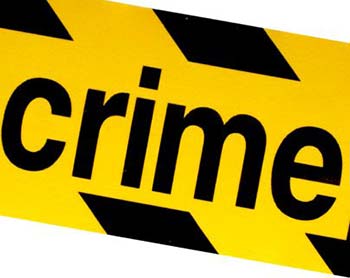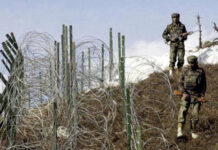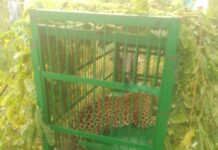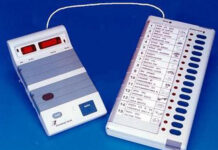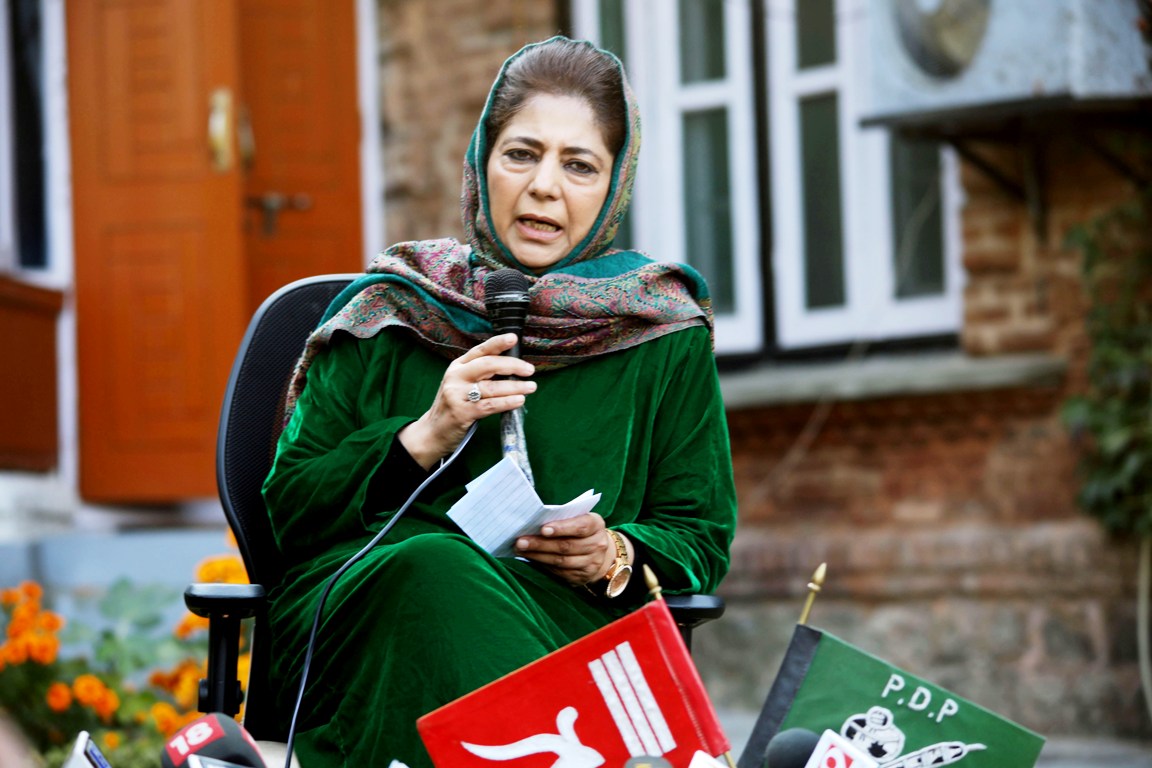SRINAGAR: The buzz of adulteration in honey in India’s leading brands bamboozled consumers and everyone started to think: are they consuming honey or Sugar? Now, most of the consumers have started consuming the local brands which lack access to the sophisticated honey-like imports from China.
 The reports came at a time when the Hindi Cheeni Bhai Bhai relationship has turned sour especially at Line of Actual Control (LAC) that led to calls for boycotting Chinese products. However, the reports that corporate India continued selling the golden liquid (sweet honey) with imported Chinese immersions. The brands facing the music include Dabur, Patanjali, Baidyanath, and Zandu.
The reports came at a time when the Hindi Cheeni Bhai Bhai relationship has turned sour especially at Line of Actual Control (LAC) that led to calls for boycotting Chinese products. However, the reports that corporate India continued selling the golden liquid (sweet honey) with imported Chinese immersions. The brands facing the music include Dabur, Patanjali, Baidyanath, and Zandu.
“Honey sold by major brands in India are laced with modified sugar syrup, imported from China as well as manufactured in India, which go undetected during quality checks under prevailing Indian standards, a Centre for Science and Environment (CSE) investigation has found,” The Indian Express reported.
As the honey sold in the Indian market is adulterated, some have called this India’s Honeygate. “Out of the 13 brands tested, only three — Saffola, MarkfedSohna and Nature’s Nectar passed this test done by the German lab,” The Print website wrote.
Addressing a press conference Wednesday, CSE director general Sunita Narain said samples of 10 out of 13 brands, which were examined, failed to clear the Nuclear Magnetic Resonance (NMR) test, which can provide clues into the composition of a product at the molecular level. Of the 10 brands, three failed to clear even Indian quality standards, while five failed the TMR (test to detect rice syrup) apart from NMR. The tests were carried out in a German lab”, Narain was quoted saying.
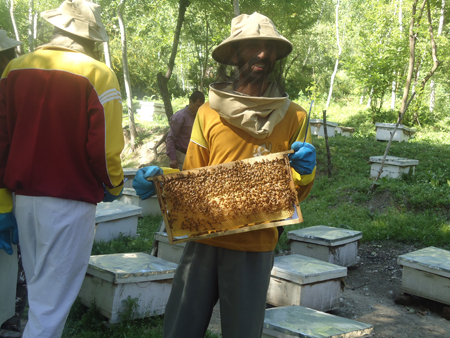
According to the report in the Indian Express, the German lab found that “Dabur honey passed tests for C3 and C4 sugar, but failed the NMR tests on all three samples. In one sample it also failed on TMR and Patanjali honey passed tests for C3 and C4 sugar, but failed TMR and NMR tests on both samples”.
The brands have rejected the findings and called it an attempt to malign them according to media reports.
Dabur India Ltd said, “The recent reports seem motivated and aimed at maligning our brand. We assure our consumers that Dabur Honey is 100% pure. We also assure our consumers that Dabur does not import any honey/syrup from China and our honey is sourced entirely from Indian beekeepers,” The Indian Express reported.
Patanjali Ayurved Ltd MD Acharya Balakrishnan also stressed on the “100 per cent purity” of the company’s product. “It seems to be a plot to defame Indian natural honey industry and manufacturers in a bid to promote processed honey. It further seems to be an international marketing design to promote German technology and machines which cost crores of rupees,” he told The Indian Express.
According to CSE director general Sunita Narain, “the organisation launched an investigation when beekeepers in North India reported reduced profits despite a spike in honey sales during the Covid-19 pandemic,” she told The Print.
With Covid season not yet gone and as people are finding ways to boost immunity especially in winters, the investigation reports by CSE come at a time when abundant amounts of honey and concoctions made with it are used to ward off the novel Coronavirus.
“The CSE has alleged that Indian honey companies had designed their products to pass the regulations laid down by the Food Safety and Standards Authority of India (FSSAI), but it was a German lab that saw through the tinkering with sugar syrup,” The Print reported.
All Pass?
Were consumers consuming sugar in the name of honey?
“‘Nuclear Magnetic Resonance’ — that’s the phrase that not many in Indians are googling. It’s what reportedly caught the honey adulteration that passed through undetected in Indian tests,” the report in The Print said, adding that it identifies modified sugar syrups. So, how did the brands pass the FSSAI tests called C3 and C4? Answering these questions, the report said that China has created several sugar syrups that go undetected in tests. You could buy them off Alibaba and other sites, and import them to India, some labelled as ‘paint’ to go under the radar. In Indian markets, these sugars were called ‘All Pass’.
Food Fraud?
This overuse of sugar in our diet will make it worse,” CSE’s Sunita Narain told Business Today. “It is a food fraud more nefarious and more sophisticated than what we found in our 2003 and 2006 investigations into soft drinks; more damaging to our health than perhaps anything that we have found till now — keeping in mind the fact that we are still fighting against a killer Covid-19 pandemic with our backs to the wall,” she said.
Pertinent to mention, earlier this year, on August 1, India made the Nuclear Magnetic Resonance test mandatory for all honey exports. “The CSE realised that raw honey adulterated to even 50 per cent of the content passed the Indian tests,” The Print reported. The Indian Express reported that according to data from the National Bee Board, India exported 1.05 lakh metric tonnes of honey in 2017-18, a 200 per cent jump in 12 years. The government also gives a considerable sum to bee farming.
“Sugar ingestion is directly linked to obesity and obese people are more vulnerable to life-threatening infections,” added Narain.
According to media reports, “The team had procured a sample of the syrup from a Chinese company during its investigations. According to Narain, the product was disguised as “paint pigment” to clear customs. The CSE team also found that a factory to manufacture this ‘Chinese syrup’ was set up in Jaspur, Uttarakhand. According to Narain, CSE researchers used code word “all pass” (for the syrup) to procure a sample from Jaspur. “What was shocking to find is that adulterated samples with 25 per cent and 50 per cent sugar syrup passed the test of purity. In this way, we confirmed that sugar syrups exist that can bypass the 2020 FSSAI standard for honey,” said Khurana, CSE’s programme director of Food Safety and Toxins.
Researchers at the CSE selected 13 top and smaller brands of processed and raw honey being sold in India. Samples from these were tested at the Centre for Analysis and Learning in Livestock and Food (CALF) at the National Dairy Development Board (NDDB) in Gujarat. Almost all, except Apis Himalaya, passed the basic tests of purity, the CSE said. However, when the same brands were tested using NMR, which was conducted by a specialised laboratory in Germany, most brands failed.
According to the report in The Print, Amit Khurana, programme director of CSE’s Food Safety and Toxins team, said: “It shows how the business of adulteration has evolved so that it can pass the stipulated tests in India.”


